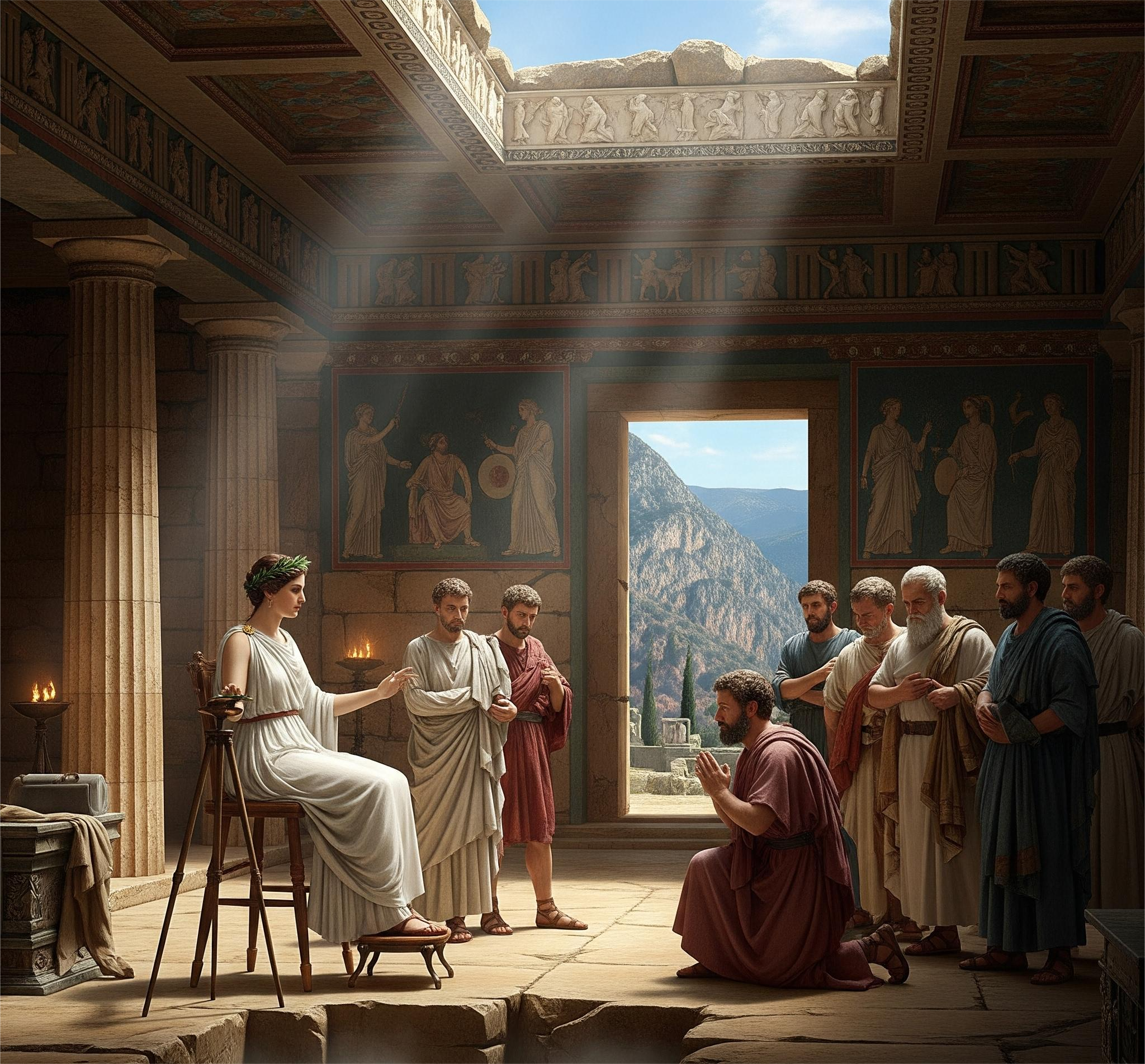In the heart of ancient Greece, nestled on the slopes of Mount Parnassus, lay one of the most sacred and mysterious sites of the classical world: Delphi. Home to the Oracle of Apollo, Delphi was far more than a religious shrine—it was a place where gods whispered truths, kings sought guidance, and entire city-states altered their destinies based on cryptic messages from the divine.
Who Was the Oracle?
The Oracle of Delphi was not a single individual but a succession of priestesses known as the Pythia, chosen from among local women. Seated above a fissure in the earth, the Pythia would inhale sweet-smelling vapors—possibly ethylene gas escaping from the rocks—and enter a trance-like state, believed to be divine possession by the god Apollo.
Her utterances, often obscure or poetic, were interpreted by male priests who then relayed the messages to those who had come seeking answers.
A Pan-Hellenic Institution
Delphi wasn’t merely a local temple—it was a pan-Hellenic sanctuary, respected by all Greek city-states regardless of rivalries. The Delphic Oracle’s authority crossed political, religious, and cultural boundaries, offering divine counsel that could unite or divide.
Pilgrims from across the Greek world (and even beyond) made the arduous journey to Delphi, often bearing rich offerings to ensure the god’s favor.
Political Power and Warfare
The Oracle played a central role in shaping Greek geopolitics. Leaders consulted her before declaring war, founding colonies, or implementing reforms. A few notable examples include:
The Battle of Salamis (480 BCE): As Persia loomed over Greece, the Oracle’s warning that Athens would be saved by a "wooden wall" was interpreted by Themistocles to mean the navy—leading to a decisive naval victory.
Colonial Expansion: Cities like Cyrene (in modern-day Libya) were founded based on Apollo’s advice through the Pythia, influencing the spread of Greek culture and trade.
Spartan Reforms: Lycurgus, the legendary lawgiver of Sparta, claimed that his constitutional changes were inspired by divine will, affirmed at Delphi.
Personal Guidance
It wasn’t just kings and generals who sought her wisdom. Ordinary citizens came for personal questions: Should I marry? Will my crops grow? Should I travel to another land? In a world ruled by fate, the gods’ insight could provide comfort—or stir anxiety.
The Oracle’s influence permeated private life, reinforcing moral values, taboos, and religious piety. People interpreted her often ambiguous words in ways that shaped their decisions and worldviews.
A Symbol of Balance and Moderation
The Delphic maxims—short moral aphorisms inscribed at the temple, such as “Know thyself” (γνῶθι σεαυτόν) and “Nothing in excess” (μηδὲν ἄγαν)—were philosophical cornerstones. They reflected the Oracle’s broader cultural role in promoting balance, humility, and wisdom.
Philosophers like Socrates and Plato admired the Delphic tradition, seeing it as a link between human reason and divine insight.
Decline and Legacy
The Oracle’s influence declined during the Roman era, especially as Christianity rose and the old gods faded. The final recorded prophecy was delivered around 393 CE, when Emperor Theodosius I officially closed pagan temples.
Yet the legend of the Oracle lives on. She remains a powerful symbol of:
The ancient world’s desire to connect with the divine
The role of faith in governance and daily life
The enduring tension between free will and fate







